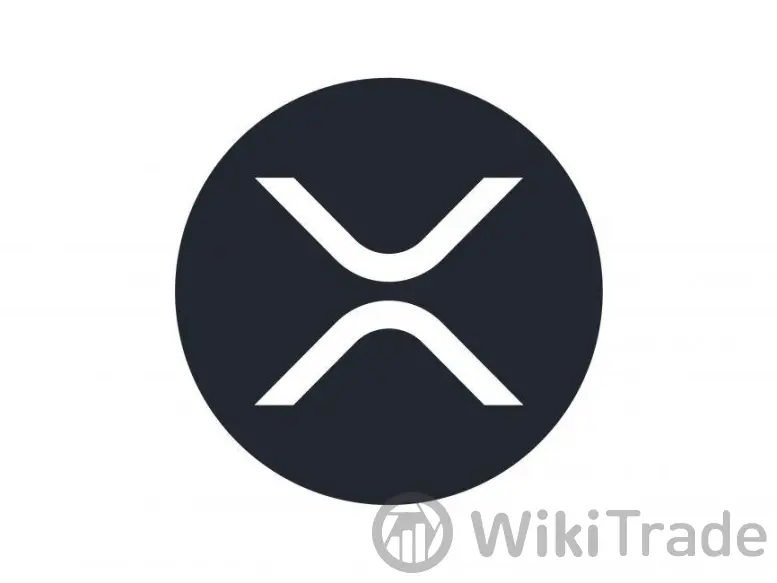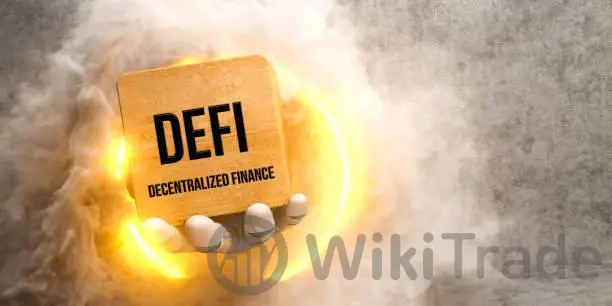How to Sell Crypto for Cash?
Abstract: Cryptocurrency represents an innovative digital or virtual currency system, characterized by its use of cryptography for securing transactions. This form of currency is distinct for its decentralization; it operates on a distributed ledger technology known as blockchain, which allows for transparent and immutable recording of transactions across a network of computers. The inception of cryptocurrencies was marked by the launch of Bitcoin currency in 2009 by an individual or group using the pseudonym Satoshi Nakamoto. Bitcoin introduced a peer-to-peer electronic cash system that eliminated the need for central authorities, such as banks or governments, in financial transactions.
Introduction: Decoding the World of Cryptocurrency and Its Cash Conversion
Cryptocurrency Fundamentals: Cryptocurrency represents an innovative digital or virtual currency system, characterized by its use of cryptography for securing transactions. This form of currency is distinct for its decentralization; it operates on a distributed ledger technology known as blockchain, which allows for transparent and immutable recording of transactions across a network of computers. The inception of cryptocurrencies was marked by the launch of Bitcoin currency in 2009 by an individual or group using the pseudonym Satoshi Nakamoto. Bitcoin introduced a peer-to-peer electronic cash system that eliminated the need for central authorities, such as banks or governments, in financial transactions.
Preparation for Crypto Transactions: Prior to selling cryptocurrency for cash, one needs to establish a secure digital wallet, familiarize oneself with the current market rates, and select a trustworthy exchange platform. Moreover, recognizing the legal and tax implications within one's jurisdiction is indispensible to ensure a smooth and compliant transaction process.
Evolution of Cryptocurrency Transactions: The digital currency landscape is continually evolving, with Bitcoin at the forefront of this innovation. This evolution encompasses the introduction of decentralized finance (DeFi), non-fungible tokens (NFTs), and other blockchain-enabled financial instruments. Awareness of these advancements and their implications on the market might help traders to find their very own best cryptocurrency.
Bitcoin (BTC): The pioneer of cryptocurrencies, Bitcoin was introduced in 2009 with the goal of creating a decentralized digital currency for peer-to-peer transactions without the need for a central authority. It has since emerged as the most widely used and recognized cryptocurrency.
Litecoin (LTC): Created by Charlie Lee in 2011, Litecoin is often considered the silver to Bitcoin's gold. It attempts to offer faster transaction times and utilizes a different mining algorithm, Scrypt, which is intended to allow more people to participate in the mining process.
CRO Coin: The native cryptocurrency of the Crypto.com platform, CRO Coin facilitates transactions and rewards within the Crypto.com ecosystem. It supports a range of use cases, including payments, trading, and financial services on the Crypto.com chain.
Ethereum (ETH): Launched in 2015, Ethereum is more than just a cryptocurrency. It's a decentralized platform that enables smart contracts and decentralized applications (dApps) to be built and operated without any downtime, fraud, control, or interference.
Ripple (XRP): Created for digital payment network use, Ripple commits to enable secure, instant, and nearly free global financial transactions of any size with no chargebacks. Its digital payment protocol is better known than its cryptocurrency, XRP.
Cardano (ADA): Founded by Ethereum co-founder Charles Hoskinson, Cardano is a blockchain platform for smart contracts that would be possible to provide more advanced features than any protocol previously developed. It's the first blockchain platform to evolve out of a scientific philosophy and a research-first driven approach.
Polkadot (DOT): Polkadot intends to enable different blockchains to transfer messages and value in a trust-free fashion; sharing unique features while pooling their security. It is a multi-chain interchange and translation architecture which allows customized side-chains to connect with public blockchains.
Chainlink (LINK): A decentralized oracle network, Chainlink focuses on connecting smart contracts with data from the real world. It is built on Ethereum and allows smart contracts to securely interact with external data feeds, events, and payment methods.
Binance Coin (BNB): Originally created as a utility token for the Binance cryptocurrency exchange, BNB has expanded its utility to include transaction fee discounts, token burns, and participation in token sales on Binances Launchpad.
Evaluating Your Crypto Portfolio: Before initiating a sale, traders need to conduct a thorough assessment of your cryptocurrency holdings. This involves reviewing the current market value of each asset, understanding the historical performance, and identifying the ideal candidates for sale based on your financial goals and market conditions. Tools like CoinMarketCap and CoinGecko can provide real-time data to help make informed decisions.
Choosing a Secure and Efficient Crypto Wallet: The security of your cryptocurrency assets, for instance, Litecoin, is of utmost importance. Selecting a reliable litecoin wallet—whether its a hardware wallet like Ledger or Trezor for cold storage, or a software wallet for more frequent access—is crucial for safeguarding your assets such as Litecoin (LTC) before, during, and after the sale.Hardware wallets are particularly recommended for storing Litecoin due to their enhanced security features, making them ideal for long-term holders. Conversely, software wallets offer more convenience for daily transactions involving Litecoin and other cryptocurrencies, though they come with higher risks due to their internet connectivity. The choice between hot and cold wallets should be based on your transaction frequency and security preferences.
Consolidation of Assets: If your cryptocurrencies are dispersed across multiple wallets or exchanges, consider consolidating them into a single, secure location. This simplification can streamline the selling process, reduce transaction fees, and minimize the risk of security breaches. However, always ensure that the chosen platform or wallet supports all your crypto assets and offers robust security features.
Understanding Market Liquidity: The liquidity of your cryptocurrency is a critical factor to consider when preparing for a sale. Some assets may be more liquid on certain exchanges than others, affecting your ability to sell quickly and at your desired price. Researching and selecting a platform with high liquidity for your specific cryptocurrency can facilitate a smoother and more profitable transaction.
Legal and Tax Preparation: Familiarize yourself with the legal and tax implications of selling cryptocurrency in your jurisdiction. This may involve reporting capital gains or losses and understanding the tax liabilities that could arise from your transaction. Consulting with a financial advisor or a tax professional who specializes in cryptocurrency can provide clarity and help you navigate these complexities.
Setting Realistic Price Expectations: Based on your portfolio evaluation and current market trends, set realistic price targets for your assets. Utilize technical analysis and market sentiment indicators to forecast potential price movements and determine the optimal timing for your sale. Setting clear objectives can help in making informed decisions and avoiding emotional trading.
Evaluate Holdings: Start by assessing your Bitcoin portfolio to determine how much you're willing to sell. Consider market conditions, your financial goals, and potential tax implications.
Set a Target Price: Based on your evaluation and current market trends, decide on a favorable selling price. Tools like market analyses and price alerts can aid in this decision.
Platform Choice: Choose between centralized exchanges (CEXs), decentralized exchanges (DEXs), or peer-to-peer (P2P) platforms based on your needs for security, convenience, and the type of cash-out method preferred.
Account Setup and Verification: Create an account on the chosen platform. Complete any required verification processes to comply with Know Your Customer (KYC) and Anti-Money Laundering (AML) regulations.
Transfer to Platform Wallet: If your Bitcoin is stored in a personal wallet, transfer it to your account on the chosen platform. Ensure the platform's wallet address is correct to avoid loss of funds.
Understand Fees: Familiarize yourself with the platform's fee structure for selling and withdrawing funds to avoid surprises.
Market Order: For immediate sale, place a market order, which will sell your Bitcoin at the best available current market price.
Limit Order: If you have a target price in mind, use a limit order. Your Bitcoin will be sold when the market reaches your specified price.
Select Withdrawal Method: Platforms typically offer various withdrawal methods, including bank transfer, PayPal, or check. Choose the one that suits your preferences and needs.
Withdraw Funds: Once the sale is complete, withdraw your funds. Be mindful of withdrawal limits and processing times, which can vary by platform.
Transaction Records: Maintain detailed records of the sale, including the date, sale amount, and any fees incurred. These records are crucial for tax reporting and personal financial management.
Tax Compliance: Consult with a tax professional to accurately report your cryptocurrency sale on your tax returns, adhering to your local tax laws and regulations.
Centralized Exchanges (CEXs): These platforms are the most common avenues for selling cryptocurrencies, offering ease of use, robust security measures, and a wide range of fiat withdrawal options. Examples include Coinbase, Binance, and Kraken. They act as intermediaries, facilitating trades between buyers and sellers.
Decentralized Exchanges (DEXs): DEXs provide a peer-to-peer trading environment without the need for a central authority, enhancing privacy and control over your assets. However, they might have lower liquidity and longer transaction times compared to CEXs.
Peer-to-Peer (P2P) Platforms: P2P exchanges allow direct transactions between individuals, often providing more payment methods and local currency options. These platforms, like LocalBitcoins and Paxful, can offer more flexibility and potentially better exchange rates but require more caution regarding counterparty risk.
Study Historical Data: Analyze past market trends to identify patterns that might indicate when the market is likely to move in your favor. Tools like candlestick charts and historical price graphs are invaluable for this analysis.
Stay Informed on Current Events: Cryptocurrency markets can be significantly impacted by global events, regulatory news, and technological advancements. Stay updated with reputable crypto news sources to understand how these factors might influence BTC prices.
Use Technical Indicators: Employ technical indicators such as moving averages, Relative Strength Index (RSI), and Fibonacci retracements to predict future price movements. These tools can help identify potential sell or buy signals.
Volume Analysis: Pay attention to trading volume as it can indicate the strength of a price move. Higher volumes in a price direction often validate the trend.
Evaluate Market Sentiment: Tools like the Fear and Greed Index can provide insights into the overall market sentiment, helping you gauge whether investors are likely bullish or bearish on BTC.
Assess BTCs Intrinsic Value: Consider factors such as the network's hash rate, active addresses, and transaction volumes to evaluate Bitcoin's underlying health and potential for growth.
Determine Your Financial Goals: Decide on your primary objective for selling BTC—whether it's securing profits, minimizing losses, or reallocating assets.
Define Exit Points: Based on your analysis, set clear price targets for selling your BTC. Consider using a stop-loss order to automatically sell at a predetermined price, minimizing potential losses.
Market Timing Risks: While tempting, trying to time the market perfectly is extremely challenging and can lead to missed opportunities. A more prudent approach is dollar-cost averaging, which involves selling small portions over time to average out the selling price.
Watch for Volatility: The cryptocurrency market is known for its volatility. Sudden price swings can present selling opportunities but require readiness to act quickly.
Monitor Regulatory Changes: New regulations or policies in key markets can influence BTC prices. Keeping an eye on these developments can inform your selling decisions.
Global Economic Trends: Economic indicators such as inflation rates, exchange rates, and economic policies in major economies can affect BTC's value. Consider how these factors may impact your conversion from BTC to cash.
Capital Gains Tax: In many jurisdictions, selling BTC for cash triggers a capital gains tax event. The tax rate can vary based on the holding period (short-term vs. long-term gains) and your income bracket.
Record-Keeping: Maintain detailed records of your BTC transactions, including dates of purchase and sale, amounts in BTC and in fiat currency, and any fees incurred. This documentation is essential for accurate tax reporting.
Tax Forms: Depending on your country, different tax forms may be required for reporting cryptocurrency transactions. In the U.S., for example, Form 8949 and Schedule D are used to report capital gains and losses from asset sales.
Yearly Reporting: Cryptocurrency transactions must be reported in your annual tax return. Failing to report such transactions can result in penalties and interest on unpaid taxes.
Know Your Customer (KYC) and Anti-Money Laundering (AML): Exchanges and platforms often require users to complete KYC procedures to prevent money laundering and fraud. This may include submitting identification documents.
International Regulations: If you're engaging in cross-border transactions, be aware of the regulations in both jurisdictions. Compliance with international AML standards is crucial.
Consult a Tax Professional: Tax laws regarding cryptocurrency can be complex and vary by location. A tax professional with experience in cryptocurrency can provide personalized advice, ensuring compliance and optimizing your tax situation.
Legal Consultation: In cases of regulatory uncertainty or complex transactions, consulting with a legal expert specializing in cryptocurrency can provide clarity and help navigate legal complexities.
Regulatory Landscape: The regulatory environment for cryptocurrency is evolving. Stay informed on legislative updates in your jurisdiction to ensure ongoing compliance.
Tax Law Amendments: Tax rates and rules applicable to cryptocurrencies may change. Regularly review the tax guidelines issued by your local tax authority.
Audit Readiness: In the event of a tax audit, having organized and complete records of all your cryptocurrency transactions will be invaluable. It demonstrates compliance and can facilitate a smoother audit process.
Enhanced Digital Identity Verification: Leveraging Bitcoin's blockchain for digital identities could offer a secure, immutable, and universal system for verifying personal information online. This application would reduce fraud and streamline online verification processes, from banking to voting systems.
Integration with Emerging Technologies: Combining Bitcoin with advancements in fields such as quantum computing and artificial intelligence could lead to secure, autonomous financial systems. Imagine AI-driven wallets that manage your Bitcoin investments or quantum-resistant encryption that further secures the Bitcoin network.
Expansion into Virtual Reality (VR): As virtual reality environments become more prevalent for social interaction, work, and entertainment, Bitcoin could become the currency of choice within these digital realms, facilitating transactions in virtual marketplaces and communities.
Supporting Space Exploration: Bitcoin could serve as a universal currency for future space colonies or missions, providing a decentralized and secure method of transaction beyond Earth's confines. Its use in space could facilitate trade between interplanetary colonies and Earth, or even within space itself.
Advancements in Supply Chain Transparency: Bitcoin's blockchain technology could revolutionize supply chain management, providing transparent, tamper-proof records of product origins, manufacturing processes, and distribution pathways. This could significantly enhance ethical sourcing and consumer trust.
Global Disaster Relief and Response: Bitcoins ability to facilitate fast, borderless transactions could make it an invaluable tool in global disaster relief efforts, enabling quick fundraising and efficient allocation of resources to affected areas.
Evolution of Art and Ownership: The concept of digital ownership and provenance, highlighted by the NFT boom, could extend to various forms of art and intellectual property, with Bitcoin providing a secure and immutable ledger for these digital assets.
Decentralized Autonomous Organizations (DAOs): Bitcoin could underpin the financial transactions of DAOs, fully autonomous and decentralized entities that operate without centralized control, revolutionizing organizational structures and governance.
Breakthroughs in Financial Inclusion: Bitcoin has the potential to further bridge the gap in global financial inclusion, providing unbanked populations with access to financial services, savings, and credit facilities through simple mobile interfaces.
Gamification of Financial Education: Leveraging Bitcoin and blockchain technology to create educational platforms and simulations that gamify learning about finance and economics, encouraging wider understanding and engagement with financial systems.

The fundamentals of cryptocurrency are rooted in its blockchain technology. Each transaction with Bitcoin or any other cryptocurrency is digitally signed and added to a block in the chain, ensuring the security and integrity of the transaction data. These transactions are then verified by network participants, known as miners, through a process that involves solving complex cryptographic puzzles. Successful verification adds the block to the existing blockchain and rewards the miners with a predetermined amount of the cryptocurrency, a process known as mining.


Main Types of Cryptocurrencies: From Bitcoin to Altcoins









The landscape of cryptocurrency is continuously evolving, with new coins and tokens being developed to address specific market needs—from digital cash systems and utility tokens to privacy coins and platforms for decentralized finance (DeFi). This diversity not only underscores the innovative potential of blockchain technology but also highlights the varied approaches to solving both new and old challenges within the financial sector and beyond.

Setting the Stage: How to Start Crypto Transactions?

BTC to Cash Conversion: A Detailed Step-by-Step Guide
Converting Bitcoin (BTC) to cash is a procedure that involves several crucial steps regarding the transaction's security, legality, and profitability. Below is a comprehensive breakdown of the process:
Decision on the Sale Amount:
Selecting a Selling Platform:
Preparing Bitcoin for Sale:
Listing and Selling Bitcoin:
Receiving and Withdrawing Funds:

Record Keeping and Tax Reporting:
Following these steps can streamline the process of converting Bitcoin to cash. Remember, the key to a successful sale lies in careful planning, thorough research, and adherence to legal requirements.
Choosing the Right Platform: Where to Buy Cryptocurrency Online?
Many traders often ask, “How to buy bitcoin online? And where?” We are well-positioned to answer that selecting an appropriate platform is the cornerstone in the journey of converting cryptocurrency to cash. Now, let's delve into the criteria for choosing a platform that aligns with your needs, ensuring a smooth, secure, and advantageous transaction.
Types of Platforms Available:

Security Measures: The platforms security infrastructure is non-negotiable. Look for platforms with a strong track record of security, including two-factor authentication (2FA), insurance on deposits, and cold storage of assets. Research the platform's history for any past security breaches and how they were resolved.
Liquidity and Slippage: High liquidity is crucial for executing trades at your desired price without significant slippage. Platforms with higher trading volumes typically provide better liquidity, ensuring that large orders can be filled efficiently.
Fees Structure: Understanding the fee structure is essential to avoid unexpected costs. Platforms may charge transaction fees, withdrawal fees, and sometimes hidden fees. Compare the fee structures of different platforms to find the most cost-effective option.
Regulatory Compliance and Reputation: A platform's compliance with regulatory standards and its reputation among users can significantly impact your trading experience. Opt for platforms that adhere to regulatory requirements in your jurisdiction, offering additional layers of security and consumer protection.
User Experience and Support: The platform should offer an intuitive interface and robust customer support to navigate any issues that may arise during the selling process. Responsive customer service and a user-friendly platform can greatly enhance the selling experience.
Withdrawal Options and Limits: Check the platform's withdrawal options to ensure they support your preferred method and currency. Also, be aware of any withdrawal limits, as these can affect your ability to cash out your cryptocurrency in a timely manner.
Timing and Market Analysis: How To Make Money from Bitcon?
Successfully converting Bitcoin (BTC) to cash often hinges on timing and market analysis. Here's how to approach this critical aspect:
Understanding Market Trends:
Technical Analysis:
Fundamental Analysis:

Setting a Selling Strategy:
Timing the Market:
Regulatory and Economic Indicators:
While no method guarantees a perfect outcome, informed decisions based on comprehensive analysis can mitigate risks and capitalize on favorable market conditions.
Navigating Taxes and Regulations: Keeping Your BTC Sales Compliant
The conversion of Bitcoin (BTC) to cash is not just a financial transaction but also a regulatory and tax event that requires careful consideration. Understanding the relationship between crypto and taxes, along with the regulations in your jurisdiction are crucial for a compliant and penalty-free transaction.
Understanding Tax Obligations:
Reporting Your Sale:
Regulatory Compliance:

Seeking Professional Advice:
Staying Updated on Changes:
Preparing for Audits:
What Do You Do with Bitcoins in the Future
As Bitcoin continues to carve its path into the future, its applications and uses are set to transcend current expectations, venturing into new domains that harness its underlying technology for innovative and impactful purposes. Heres a glimpse into the potential future scenarios where Bitcoin could play a pivotal role:





Top News
 WikiTrade
WikiTrade WikiTrade
WikiTrade WikiTrade
WikiTrade WikiTrade
WikiTrade WikiTrade
WikiTrade WikiTrade
WikiTrade WikiTrade
WikiTrade WikiTrade
WikiTrade WikiTrade
WikiTrade WikiTrade
WikiTrade


